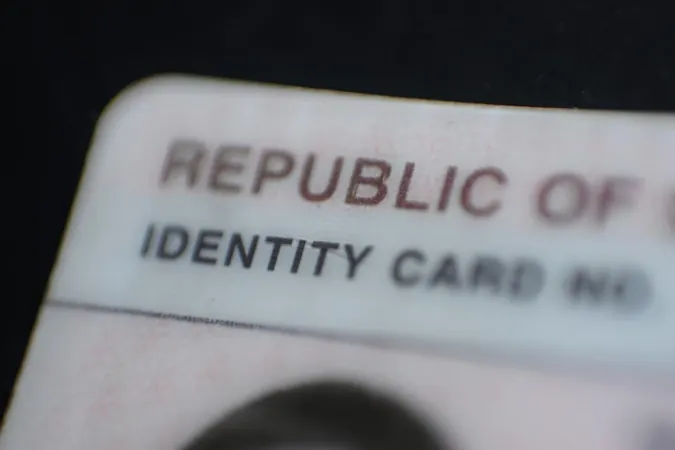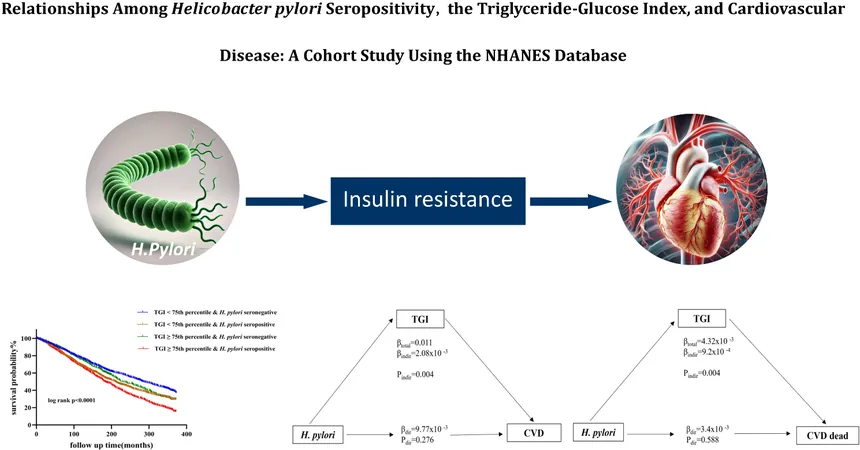
A New Era for NRIC Handling: What Singaporeans Need to Know
2024-12-21
Author: Arjun
SINGAPORE -
Singaporeans are being urged to rethink their understanding of how National Registration Identity Card (NRIC) numbers are utilized. In a recent press conference on December 19, Digital Development and Information Minister Josephine Teo emphasized that the current method of masking NRIC numbers fosters a misleading sense of security regarding the confidentiality of this sensitive information.
The misuse of NRIC numbers has risen alarmingly, with organizations incorrectly treating them as passwords and authentication methods for sensitive access. In light of concerns regarding data protection, the government plans to stop the practice of masking NRIC numbers altogether.
The situation took a turn when miscommunication between the Ministry of Finance and the Accounting and Corporate Regulatory Authority (ACRA) led to the accidental full visibility of NRIC numbers on ACRA’s new business portal. This incident has raised questions about whether this marks a significant policy reversal, with some querying the permissibility of organizations to collect NRIC numbers again.
However, Minister Teo clarified that the only modification is the government's decision to cease using masked NRIC numbers. While the intention was initially to phase out their usage internally beginning with new services, the recent event has prompted a review of existing guidelines from 2018 set by the Personal Data Protection Commission (PDPC) concerning the private sector's handling of NRIC numbers.
It’s crucial to understand that unmasking NRIC numbers doesn't imply that individuals should expose their entire number freely. Misinterpretation of this move may have contributed to the ACRA incident, with Second Minister for Finance Indranee Rajah defining the appropriate contexts for NRIC usage. For medical settings, such as confirming patient records before procedures, using the full NRIC number can enhance accuracy. Conversely, for tasks like signing up for retail memberships, alternative identifiers such as mobile numbers or email addresses should be prioritized.
An essential distinction is made between “identification” and “authentication.” The NRIC serves primarily as a unique identifier—similar to how a fingerprint is used—allowing for precise identification in databases. Authentication, conversely, is about proving identity, which should not rely on NRICs alone. Experts recommend institutions replace NRIC numbers in authentication processes with stronger options, such as one-time passwords or biometric solutions.
As fraud continues to pose a threat, the government has advised organizations to immediately cease using NRIC numbers for verification purposes, as this can lead to the possibility of identity theft. The authorities urge vigilance among citizens, reminding them that not all individuals who can recite their NRIC number should be deemed trustworthy.
Despite the complications arising from recent events, officials are currently assessing how many NRIC numbers were exposed in the Bizfile portal incident. Furthermore, Minister Teo has mentioned that ACRA does not maintain access to the NRIC information of all Singaporeans, focusing only on business-related data.
In conclusion, while the transition away from masked NRIC numbers signals progress toward improved data security, Singaporeans must remain alert to how and when they share this critical information. The government encourages constant updates, consultations, and community awareness leading to the eventual reform of NRIC usage regulations to enhance public safety and security.


 Brasil (PT)
Brasil (PT)
 Canada (EN)
Canada (EN)
 Chile (ES)
Chile (ES)
 España (ES)
España (ES)
 France (FR)
France (FR)
 Hong Kong (EN)
Hong Kong (EN)
 Italia (IT)
Italia (IT)
 日本 (JA)
日本 (JA)
 Magyarország (HU)
Magyarország (HU)
 Norge (NO)
Norge (NO)
 Polska (PL)
Polska (PL)
 Schweiz (DE)
Schweiz (DE)
 Singapore (EN)
Singapore (EN)
 Sverige (SV)
Sverige (SV)
 Suomi (FI)
Suomi (FI)
 Türkiye (TR)
Türkiye (TR)